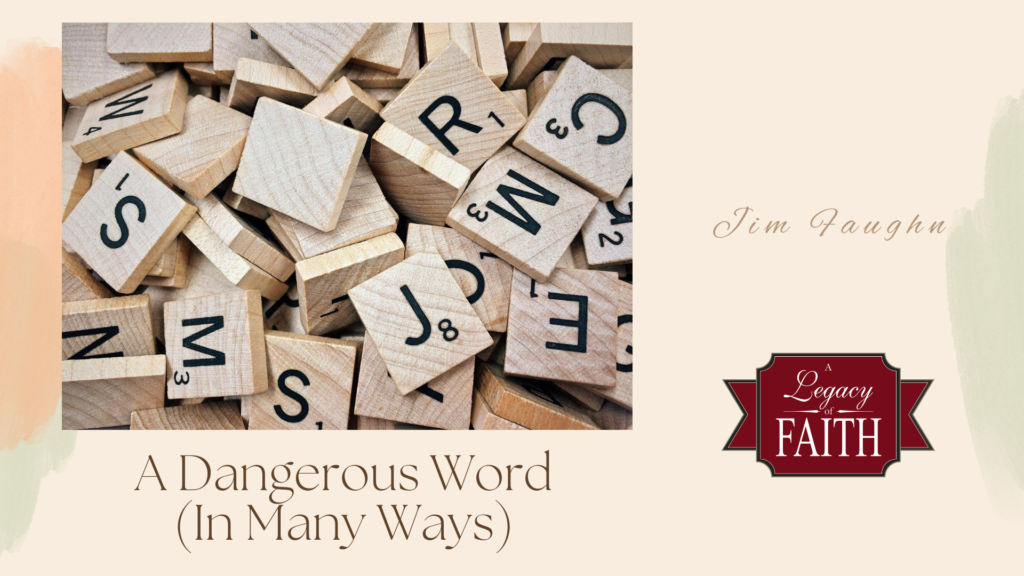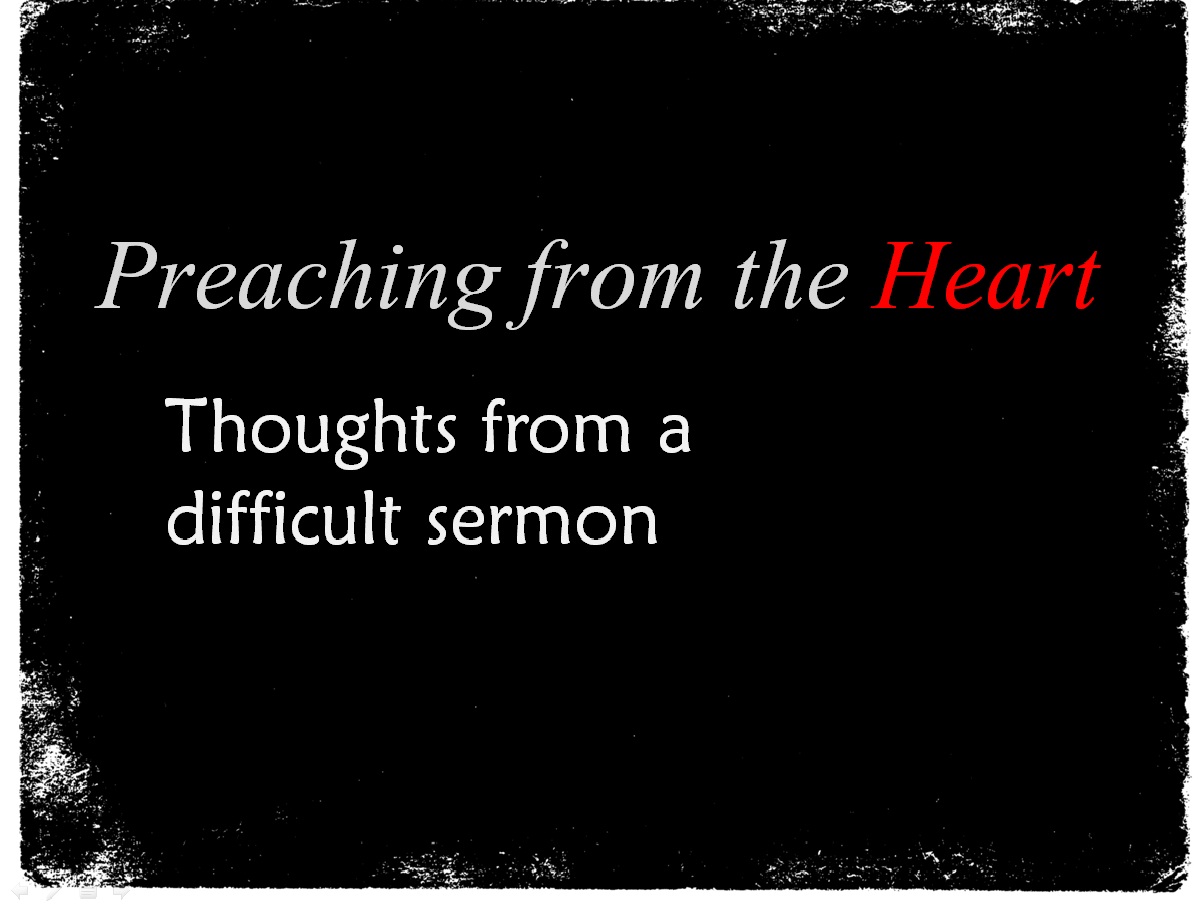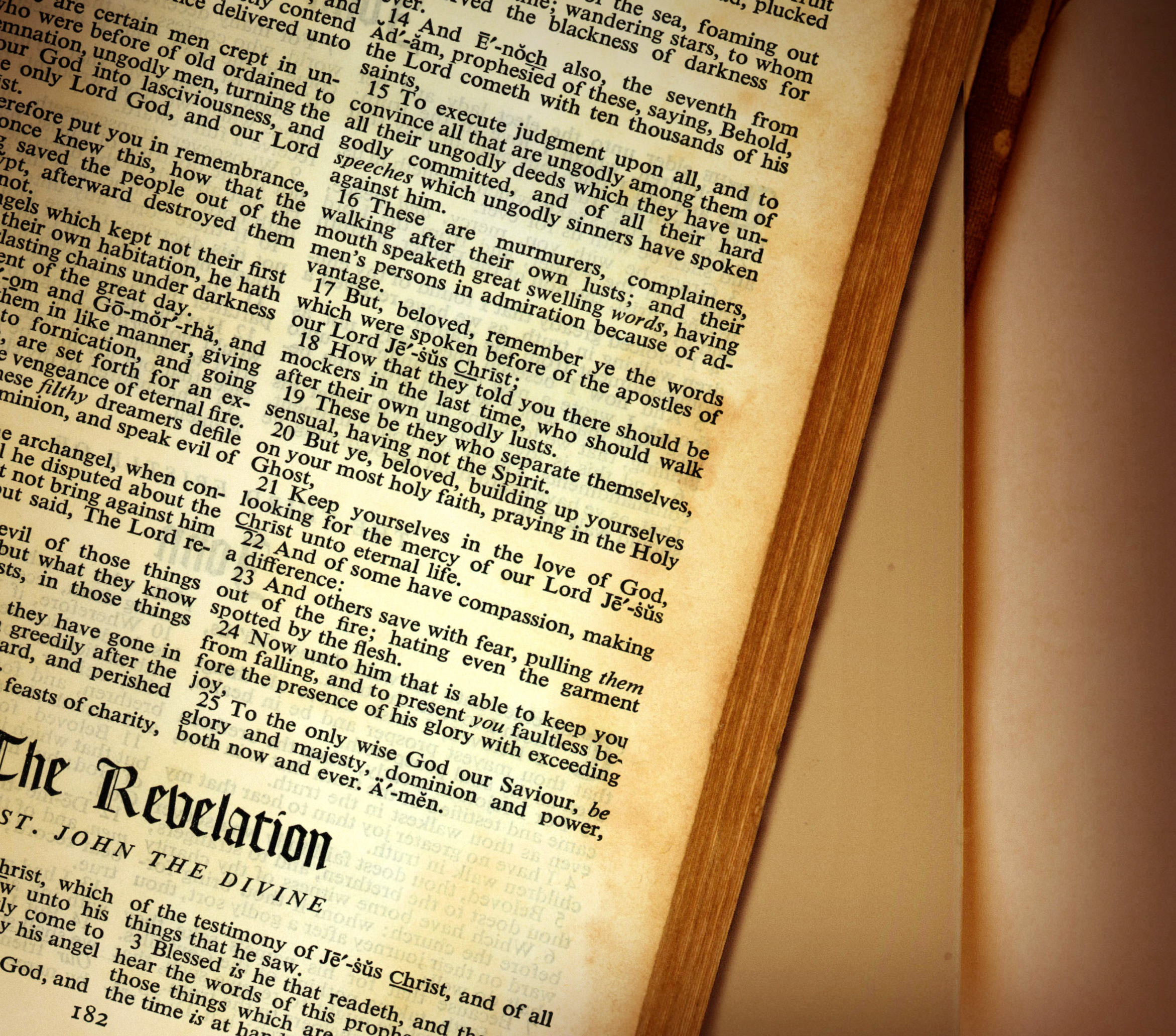A Dangerous Word (In Many Ways)
This post is scheduled to appear on the first day of April. The most common designation for this date each year is April Fools’ Day. I decided to do a quick bit of research in an effort to find out how and why this tradition got started.
It only took a few clicks on my computer for me to decide that this was one rabbit hole I didn’t want to spend any real time on. Apparently, the history of this date and its significance is either lost in obscurity and/or muddled by controversy.
Most of us recognize this date as a time of good-natured pranks, jokes, etc. It has no really serious connotations for most of us.
Of course, you may be aware that some semi-jokingly refer to this date as The Atheists’ National Holiday. This is due to the fact that the Bible informs us that…
The fool says in his heart, ‘There is no God.’… (Psalm 14:1, ESV).
For those of us who believe the Bible to be inspired by God, we understand that this to be His assessment of those who do not believe in His existence. That, in turn, would make a failure and/or refusal to believe in Him to be a very dangerous proposition. I’m fairly certain that none who reads these words would want to be considered a fool by God.
God’s assessment of people as fools is not limited only to those who deny His existence. There is a well-known parable of our Lord in which the word “fool” is used. You may remember that it is about a man whose barns could not hold all of what his crops had produced. It is at this point in the parable that we read the following:
But God said to him, ‘Fool! This night your soul is required of you, and the things you have prepared, whose will they be? So is the one who lays up treasure for himself and is not rich toward God. (Luke 12:20-21, ESV).
I hope that you noticed that, in both of the passages I’ve reproduced thus far, it is God who determines that people are fools. It is not up to any of us to make that determination.
In fact, we would do well to heed the following warning/instruction of Jesus:
But I say to you that everyone who is angry with his brother will be liable to judgment; whoever insults his brother will be liable to the council; and whoever says, ‘You fool!’ will be liable to the hell of fire (Matt. 5:22, ESV).
It is beginning to sound to me like today would be a great day to remind ourselves that the word “fool” is a word of eternal significance. In fact, it seems to be a good day (as is the case with every day) to remind ourselves of Jesus’ “two for one answer” when He was asked what the greatest Old Testament command was:
Jesus said unto him, Thou shalt love the Lord thy God with all thy heart, and with all thy soul, and with all thy mind. This is the first and great commandment. And the second is like unto it, Thou shalt love thy neighbour as thyself (Matt. 22:37-39, KJV).
On a day when the word “fool” is used in a lighthearted and almost meaningless way, we would be wise to pause and it is a very serious word and that it is far from meaningless. In fact, as suggested in the title, it is very dangerous.
AUTHOR: Jim Faughn



